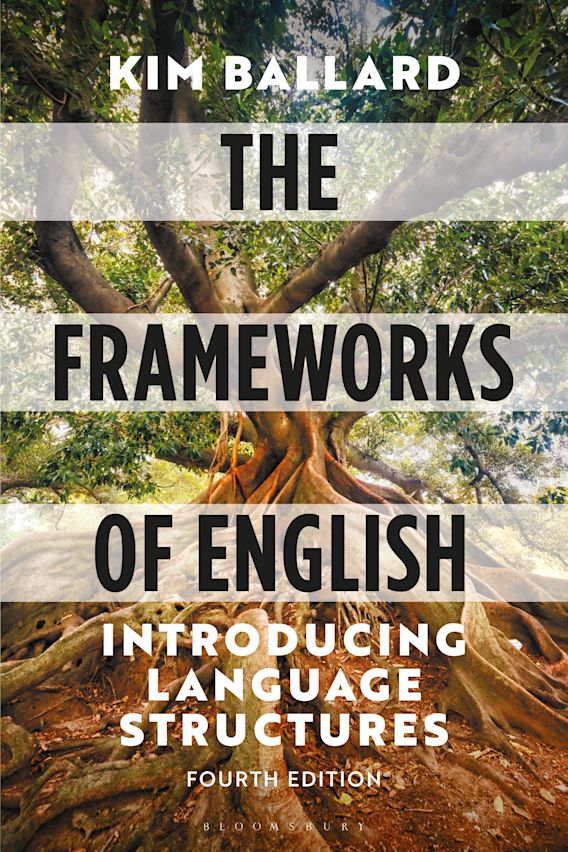


Are you sure you want to reset the form?
Your mail has been sent successfully
Are you sure you want to remove the alert?
Your session is about to expire! You will be signed out in
Do you wish to stay signed in?
This exercise relates to an extract of historical English from Section 13.3, and includes questions on a range of linguistic features, with the final question inviting you to explore the text on a discourse level.
This extract is from The London Gazette, one of the earliest newspapers, and is a report on what came to be known as the ‘Great Fire of London’, which devastated a huge area of the city in September 1666. (The original punctuation and spelling have been retained. The first ‘in’ in line 2 of the second paragraph appears to be a type-setting error.)
Whitehall, Sept. 8.
The ordinary course of this Paper having been interrupted by a sad and lamentable accident of Fire lately happened in the City of London: It hath been thought fit for satisfying the minds of so many of His Majesties good Subjects who must needs be concerned for the Issue of so great an accident to give this short, but true Account of it.
On the second instant at one of the clock in the Morning there happened to break out, a sad in deplorable fire, in Pudding Lane, neer New Fishstreet, which falling out at that hour of the night, and in a quarter of the town so close built with wooden pitched houses, spread it self so far before day, and with such distraction to the inhabitants and Neighbours, that care was not taken for the timely preventing the further diffusion of it, by pulling down houses, as ought to have been; so that this lamentable Fire in a short time became too big to be mastered by any Engines or working neer it…
Question 1
Using an etymological dictionary if needed, identify at least ten lexical words from this passage that are derived from Latin (possibly via French) and list them in their citation form. Are there any formative features that (most of) these words share?
Answer/discussion
ordinary, interrupt, lamentable, accident, satisfy, majesty, subject
concern(ed), instant, deplorable, distraction, inhabitant, prevent(ing), diffusion
Most of these words are polysyllabic, and the majority are formed (mostly in the original Latin) through affixation. (The affixes have been underlined.)
Question 2
Most readers will find the meaning of this text transparent, although there is evidence of semantic change. Consider the meanings of ordinary, Issue and instant, and in what ways their meanings have shifted over time.
Answer/discussion
The primary meaning of ordinary in Present-Day English is ‘not unusual’ or ‘commonplace’. In this context it has a meaning that was more salient in Late Modern English of ‘regular’. Issue originally referred to a ‘flowing out’ of some substance, such as water, but came to be used figuratively. Its primary PDE meaning is ‘a matter for debate or discussion’, but here it has the meaning of ‘outcome’. In PDE, instant most typically refers to a specific moment in time or has the adjectival meaning of ‘at once’. In this extract it means ‘of the same calendar month’, namely September, as indicated at the start of the passage. So the second instant refers to September 2nd. This usage has become rare in PDE, probably partly due to styles of electronic communication.
Question 3
Are there any examples in this extract of inflectional forms that are now obsolete? Comment on your findings.
Answer/discussion
The only obsolete inflection in the extract is hath (It hath been thought…). Although the -eth ending for third person singular present tense verbs had virtually died out by this time, hath, doth and saith continued to be used longer than most of their counterparts. Even if you look at the entire report online, it’s hard to determine the normal usage for this author since the account is of a past event and so makes little use of the present tense. However, you will find one instance of the -s inflection in the construction makes us conclude.
Question 4
Ignoring any differences in punctuation conventions and focussing on syntactic structure, what do you notice about sentence length and complexity in this passage?
Answer/discussion
Grammatically speaking, the extract consists of just two complex sentences, each one constituting an entire paragraph. Both sentences contain multiple subordinate clauses of a range of types, including result clauses and relative clauses. This preference for long complex sentences became fashionable in the seventeenth century, and makes an interesting contrast to the use of compound sentences we see in Extracts 1 and 3 (Exercises 13.1 and 13.3).
Question 5
The London Gazette was a subscription-based newspaper, published by the British government. What strategies has the writer/editor used to establish the authority of the publication and the information it contains?
Answer/discussion
The first paragraph/sentence of the extract establishes the purpose of the report – to inform the King’s worried subjects about the fire. They are told this will be a short but ‘true’ account of it, and this key point is made at the close of the sentence, giving it end focus. The complex sentences and extensive use of Latin-based vocabulary give the piece an air of authority. So too, in the second paragraph, do the adverbial phrases of time and place, since these suggest the author of the report is well-informed. The author also avoids apportioning any blame for the extent of destruction caused by the fire, suggesting instead that the inhabitants were too overcome with panic to stop it spreading. (Although one wonders who might be to blame for the houses being ‘so close built’.)

.